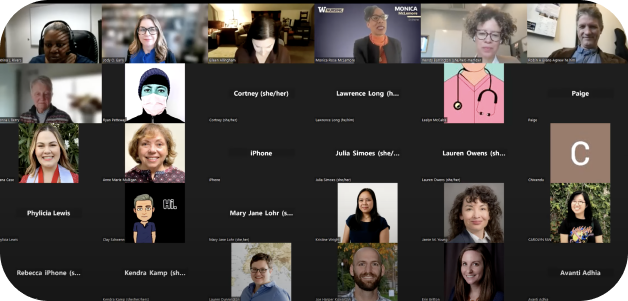

February marks the time when our nation officially recognizes the rich tapestry of Black history, celebrating the myriad contributions and accomplishments of Black people. This tradition traces back to 1926 when Carter G. Woodson, a scholar, teacher, and academic
leader, astutely observed that Black contributions to society were consistently overlooked, ignored, and even suppressed in history textbooks. To counter this deliberate erasure, he established Negro History Week to uplift, elevate, and amplify the accomplishments of Black people—an initiative that has evolved into the current Black History Month.
As we transition into March and move forward throughout the year, it is crucial to emphasize that acknowledging the boundless beauty, excellence, and creativity found in Blackness is an ongoing, year-round occasion. There is so much brilliance and inspiration — it cannot be, and should not be, contained in just one month. As we step into March, we commit to carrying this essence with us, consistently centering and uplifting Blackness — and resisting erasure and oppression in all that we do.
This commitment to sustained engagement becomes even more critical now, as around us we see efforts to suppress Black history. Such efforts include the College Board’s decision in 2023 to strip topics such as Critical Race Theory, the Black Lives Matter movement, racially disparate incarceration rates, debate over reparations for the descendants of slaves, and civil rights protections for members of the LGBTQ+ community from its AP curriculum. Of note, our understanding of these topics is driven by Black activism and scholarship. Activism and scholarship which pushes society into a racial consciousness that is critical for disrupting the pervasive, insidious, and acute manifestations of structural racism in the U.S.
The Supreme Court ruling on affirmative action was another blow with repercussions in the form of growing anti-DEI legislation to further silence the expression and embodiment of difference across college campuses. Not because campuses are solely admitting students based on race, but because the decision has been conflated with condemning commitment and efforts to promote academic environments of inclusive excellence. To cultivate learnings that encompass multiple ways of knowing and being that have historically been excluded, silenced, and erased. This narrow scope of learning continues to cripple our efforts to meaningfully
connect the public to our academic mission–teaching, practice, and research for population health equity. We must resist this –continuously, actively, intentionally, and resolutely — in pursuit of liberation for all.
Today and every day, we resist the white-washing of history and reject the silencing of Black narratives. We understand that incomplete narratives are false narratives. We understand that narratives based on stereotypes are false narratives. We understand how false narratives are used to justify oppression and rationalize harm of Black people—whether it be via race-based medicine, inequitable access to medical and public health innovations, disproportionate disciplinary action in schools, or acts of state-sanctioned or civilian violence.
This year’s Black History Month theme focused on African Americans and the Arts which we uplift as Art of Resistance.
In continuing to uplift the theme of art as resistance, we amplify the poetry of Dr. Ryan Petteway, a social epidemiologist and researcher, who embodies the art and science of public health equity action.
blessed be thy hands thy methods keen to fracture bone and flesh and street and story turn them into factors blessed be thy tongue thy unprincipled components— tell me: which component of “No.” don’t you understand? run; error 76-332: Syntax error, statement will be ignored” — Petteway, 2023
Dr. Petteway joined the University of Washington recently to discuss the imperative of addressing the harms perpetrated via anti-Blackness and anti-Indigeneity via intentional integration of arts and science in public health research and practice.
Please watch here.

We at ARCH will continue building with you to shift the orientation of public health towards building community power via authentic engagement and partnered action. We are excited to share with you that February 2024 marked the two-year anniversary of the ARCH Center—welcome to our new website! We are thrilled to have this space to share the work we have done and continue to co-create the work we are doing now and in the future. Thank you for being in community with us. We are excited to build and vision and dream with you.
In Solidarity,



Copyright © 2024 ARCH: Center For Anti-Racism And Community Health | All rights reserved.